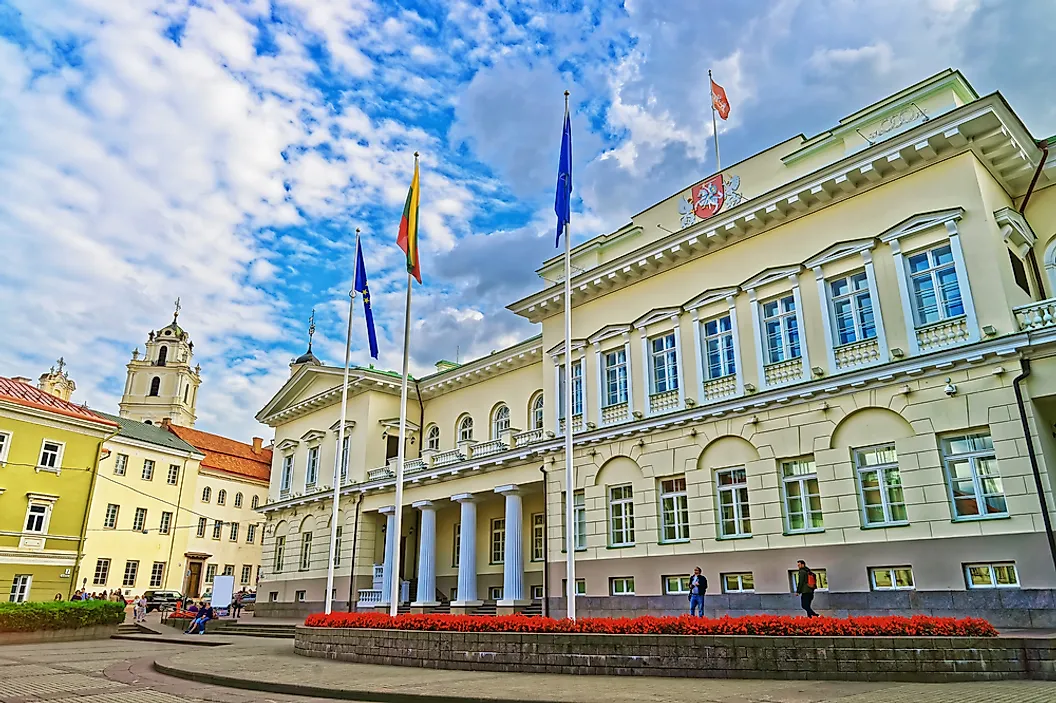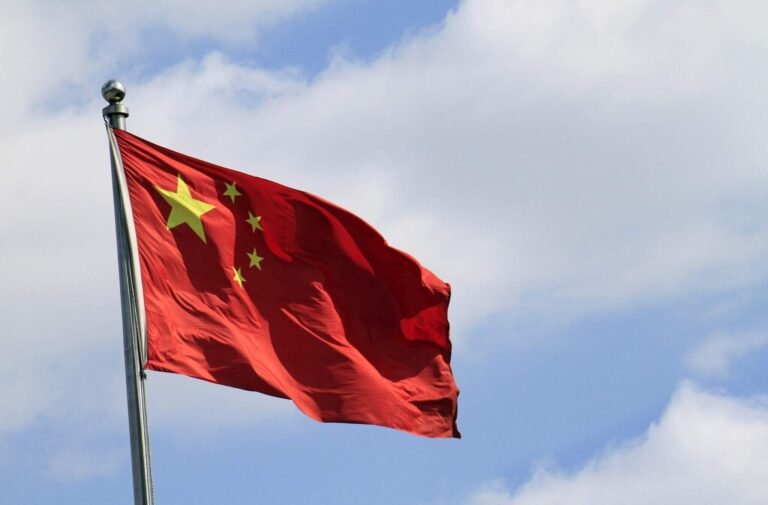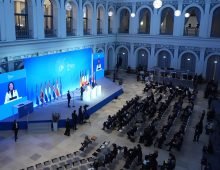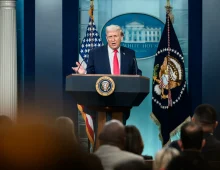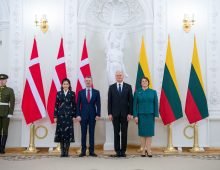Continuing a series of articles in which presidential hopefuls respond to questions posed by BNS, in the second part, we present the candidates’ responses on Lithuania’s foreign policy.
We asked the candidates about their stance on EU enlargement, the scrapping of the veto power, Lithuania’s representation at the European Council, and relations with Russia, China, and the US. In total, we asked eight questions.
Here are the answers of the top three candidates who, according to public opinion polls, have the most realistic chances of making it to the presidential election runoff. We have ranked the candidates in alphabetical order by their surname.
What countries should join the EU and NATO in the next five years?
Gitanas Nauseda: EU leaders have taken a strategic, historic decision to open accession negotiations with Ukraine and Moldova. We want accession negotiations to start immediately, with the swift adoption of negotiating frameworks and the convening of an intergovernmental conference before the end of the Belgian presidency. (…) I will make efforts for these countries to become EU members sooner than in five years, as early as 2027.
If we want to maintain peace in Europe, Ukraine must become a NATO member as soon as possible. Only collective defense – NATO’s Article 5 – is the real security guarantee that Ukraine needs. Bilateral agreements between states on security commitments to Ukraine are important but temporary and interim solutions, and are in no way a substitute for Ukraine’s membership of NATO. Important decisions and instruments to bring Ukraine closer to NATO were adopted at the Vilnius NATO Summit. Today, we are no longer asking IF Ukraine will become a NATO member; the question is WHEN it will become one. We must do our utmost to ensure that the spirit of the Vilnius NATO Summit is continued in Washington and that additional positive steps are taken toward Ukraine’s faster and clearer path to NATO membership.
Ingrida Simonyte: Those that are ready for such membership. It is in Lithuania’s interest that the geopolitical space around the EU expands and that enlargement is not a finite process, which applies not only to the so-called Eastern Partnership countries (Ukraine, Moldova) but also to the Western Balkans.
Ignas Vegele: Lithuania should strive for Ukraine, Moldova, and also Georgia to become EU members, of course, once they meet the accession requirements. However, it is necessary to ensure that after accession there are relatively long transition periods, which are important for Lithuania’s economy and our society, especially in the areas of agriculture and free movement of persons.
It is very important to work toward Moldova becoming a NATO member and seek that Ukraine could join NATO when the war is over.
A different NATO and EU enlargement is not a priority at the moment. The only NATO candidate with a membership action plan (Bosnia and Herzegovina) faces internal ethnic tensions and its membership in the near future raises serious doubts. EU candidates (Albania, Bosnia and Herzegovina, Montenegro, North Macedonia, etc.) will be able to join when they are ready, but this is not a priority for Lithuania in the next five years.
In an effort to speed-up joint decision-making, the EU’s major powers propose scrapping the veto right. If you were elected president, would you suggest keeping the current arrangements or changing them?
Nauseda: A major reform of EU decision-making was already included in the Lisbon Treaty, changing the qualified majority voting rules in the Council (which significantly curbed the voting rights of smaller member states), extending the qualified majority rule to more than 40 new policy areas, and stepping up the legislative powers of the European Parliament.
Unanimity still applies in some of the most sensitive areas (foreign and security policy, finance, taxation, enlargement, and some legal and home affairs issues). This ensures that all member states are treated equally. Unanimity gives more confidence. Unity, solidarity and the strong support of all member states for common decisions enhance the EU’s credibility and its role worldwide. I am in favor of unanimity in these important areas. (…)
Simonyte: Such decisions cannot be made solely on the proposal of the president or any other official, because their consequences are truly multifaceted and require very detailed discussions. There are topics where practice shows that abandoning unanimity would allow important decisions to be taken more quickly (sanctions, enlargement), but there are situations where the opposite holds true.
Linking the major powers’ proposal to discussions on the membership of Ukraine, Moldova and other countries is unacceptable. A merit-based approach should apply when making membership decisions; these issues cannot be seen as a package. Discussions on the decision-making process are possible and necessary, but they cannot be rushed.
Vegele: EU majority voting procedures cannot be changed. This is not in Lithuania’s interest. The decision to move to qualified majority voting on common foreign and security policy matters is particularly flawed. We cannot surrender our right to decide our country’s fate to the eurofederalists. Let me remind you that the EU’s entire history was built on and the culture of European politics has been based on the search for a common compromise. Giving the EU’s major powers a large part of decision-making will change the essence of the EU, turning it from an interstate cooperation organization into something akin to a federal state.
It is unsurprising that the EU’s major powers, using the bloc’s future enlargement as a pretext, seek to increase their influence on EU decisions and expand qualified majority voting to encompass common foreign and security policy. But for a small country like Lithuania, with a mere 0.6 percent voting weight in the Council, the introduction of qualified majority voting would essentially mean giving up its independent foreign policy and placing it in the hands of Berlin, Paris and other capitals. In other words, such a move by the EU would be tantamount to a further transfer of essential sovereign powers, and Lithuania, therefore, should not agree to that under any circumstances.
Would you suggest renaming the Taiwanese Representative Office in Lithuania?
Nauseda: Using “Taipei” in the name of Taiwan’s representative office is a common international practice in line with the “One China” policy, which was acceptable to all parties. Now the representative office in Lithuania has an unconventional name (“Taiwanese”), and what is more, experts say that the translation of the name is different in English and Chinese, and it is the Chinese translation that is of great concern to China. While welcoming in principle the establishment of such a representative office in Lithuania, in the context of the stabilization of relations with China, I would see the need to change its name. Respectful dialogue with all the parties concerned and agreement with both Taiwan and China must be maintained in all steps. The adjustment of the name could serve as Lithuania’s signal to normalize diplomatic relations with China.
Simonyte: No, I would not propose changing the name of the representative office.
Vegele: Yes, because the opening of this representative office under this name was an ill-considered step that threw Lithuania in a diplomatic spat with China and caused significant economic damage. Taiwan does not have a representative office under this name in any other EU country. Strangest of all, when the current government withdrew from the 17+1 format a few years ago, it called on other EU countries to move toward unified EU relations, yet took the reckless step of opening the Taiwanese representative office rather than coordinating such a move at EU level.
By the way, the opening of Taiwan’s representative office was not about Lithuania’s “value-based policy”, but, in fact, it was a decision that brought financial benefit to some politicians. While the state and its businesses suffered as a result of the establishment of the Taiwanese Representative Office, a few companies – Teltonika, Oxipit and Solitek – reaped specific benefits. Teltonika received 14 million euros in investments, Oxipit got 3.5 million euros in investments, and Solitek secured a loan of 8 million euros. Prime Minister Simonyte in 2019 received 18,000 euros in financial support from individuals who are now shareholders of Oxipit. Solitek’s shareholders also supported Simonyte, albeit with a smaller amount. They also contributed 3,000 euros to Conservative MP Zygimantas Pavilionis. In 2024, President Nauseda received nearly 18,000 euros in support from Teltonika’s owner. Obviously, there is no value-based policy here, just a policy for the benefit of politicians, which has harmed Lithuania. Such actions by politicians should raise questions not only of political but also of legal accountability.
Would you approve of the recognition of the Palestinian state within the next five years?
Nauseda: For the international community, the most important thing at the moment is to de-escalate the situation in the region, to secure the release of all kidnapped Israeli hostages and to ensure a smooth delivery of humanitarian aid to the people of Gaza. As long as intense warfare continues and the situation escalates further in the Middle East, it is not appropriate to consider active steps towards the recognition of Palestine. The humanitarian aspect is the most pressing now: it must be ensured that the people of Gaza receive vital services and that all captured Hamas hostages are released. It is difficult to predict how the situation in the Middle East will evolve over the next five years. As of now, the consideration of Palestinian membership in the UN Security Council yielded no results (vetoed by the US).
Simonyte: A timeframe for recognition cannot be set, but conditions can. Overall, a two-state solution seems the only rational one, all the more so because it was agreed on decades ago. However, it is impossible to imagine Hamas-controlled territory starting to show signs of statehood, which would serve as a basis for talking about a state in the West Bank and Gaza Strip.
Vegele: I emphasize that the Western world could have avoided conflicts if it had consistently followed the two-state policy. However, we must understand that Gaza is controlled by the Iranian-backed organization Hamas, which has recently carried out acts of terror against civilians. The strategic goal is to end the war as soon as possible and to put a stop to politicians’ actions that raise concerns from the point of view of humanitarian law. It is then necessary to return to a peaceful settlement of the conflict, seeking agreement between Israel and Palestine.
Should Lithuania unconditionally support US foreign policy?
Nauseda: Relations with the US will always be a top strategic priority for Lithuania because this is a guarantor of our security. The allies are committed to supporting each other in the face of any threat under the North Atlantic Treaty. Let’s not forget that the US has played a pivotal role in Lithuania’s history of statehood, including support on the path of Lithuania’s Euro-Atlantic integration. Thanks to this, we are secure today. Lithuania has been and will continue to be an advocate of strong transatlantic ties and their indispensability, regardless of who occupies the White House after the US presidential election.
We must to do everything in our power to keep US attention on Lithuania and our region, including ensuring a continued US military presence, the strongest and most credible deterrent.
Simonyte: Lithuania has to support foreign policy initiatives that are most in line with its interests and values. Our vision and interests in security issues mostly coincide with the assessments and goals of our strategic partner.
Vegele: The US is a strategic partner of Lithuania, the largest NATO ally and a key guarantor of our security, so US foreign policy is particularly important to Lithuania. We support it wherever it aligns with Lithuania’s interests.
Lithuania should unconditionally seek benefits for its people, communities, businesses, etc. A strong US commitment to the security of Central and Eastern Europe is one of the conditions for achieving this goal. It is therefore in Lithuania’s interest to make every effort to secure such a US commitment.
Who should represent Lithuania in the European Council: the president or the prime minister, or both?
Nauseda: Based on the Constitution of the Republic of Lithuania, since the entry into force of the Lisbon Treaty in 2009, the Lithuanian president has participated in the European Council’s meetings where EU policy directions are set. If elected, I will continue to defend this constitutional right and duty to represent Lithuania at the European Council.
Simonyte: The prime minister should, because most of the EU issues discussed at the European Council concern areas of government competence. The European Union is not somewhere “abroad”. Positions in the European Council, as well as in other councils, are worked out by the government and mandated by the Seimas. It is legally impossible to ensure compliance with the mandate when Lithuania is represented by the president, but the Statute of the Seimas sets out a perfectly clear procedure when this is done by the prime minister or a minister.
Vegele: Representing the Lithuanian state at the highest level and making decisions on key foreign policy issues is the president’s prerogative. Therefore, the president should continue to represent Lithuania at the European Council. In certain matters, the president, at his or her discretion, could delegate representation to the prime minister.
Should Lithuania resume political contacts with Russia, Belarus and China? If so, at what level?
Nauseda: The three countries are not identical. Our allies also maintain active political contacts with China, as evidenced by their recent intensive visits. First of all, Lithuania needs to restore diplomatic representation on both sides – to re-establish ambassadorial-level representation. Diplomacy is an instrument for acting in defense of our interests. Engaging in dialog does not mean compromising on international rules or violations of international law, or especially on national security. Dialogue is only possible on the basis of mutual respect and compliance with international obligations.
In today’s geopolitical and security context, dialogue with the Belarusian regime is hard to imagine. (…) Engaging with the regime would be contrary to the democratic vision of Belarus. Political contact with Russia, which uses or threatens to use brutal military force against its sovereign neighbors, is impossible. There is now an urgent need to prepare a strategy/plan for restraining, limiting and containing Russia and to agree on the specific means and ways in which this can be done. (…)
Simonyte: Maintaining the current level of contact with the mentioned states, I believe, is sufficient to address day-to-day challenges. Elevating the level of dialog with Russia or Belarus would be unjustified, because Russia attacked Ukraine and Belarus is Russia’s accomplice in this war. The downgrading of diplomatic relations with China occurred at China’s initiative, so changing the situation is possible only through the initiative of the same side.
Vegele: Historically, Russia has been a threat to Lithuania, having occupied Lithuania more than once. Putin’s statement that the collapse of the Soviet Union was the greatest tragedy of the 20th century confirms that the Russian government poses a threat. High-level political contacts with the aggressor state, which caused war in Europe and occupied the territory of the sovereign state of Ukraine, are not possible at the moment, either politically or morally.
What is Belarus? The Lukashenko regime or the people? At the moment, Belarus has effectively become a province of Russia. But who pushed Belarus into Russia’s embrace? Among other factors, this was the result of the actions of our politicians – this ruling majority. It is regrettable that the conservatives’ policy was endorsed by the president. Belarus’ ruling regime is responsible for its constant support for Russian aggression, for gross violations of democracy and human rights, as well as for hybrid attacks against Lithuania and neighboring countries, including through the instrumentalization of migrants from third countries. On the other hand, we must have a long-term strategy for relations with Belarus – after all, we cannot permanently accept that the Russian border, in fact, is and will be 40 kilometers from Vilnius. We will therefore be forced to think about resuming selective economic contacts (ensuring that sanctions against Russia are not circumvented, etc.). It is in Lithuania’s interest that the country retains at least a minimum degree of independence and is not finally swallowed by Russia. Therefore, we should not rule out targeted political contacts at a lower level in the future to deal with specific bilateral issues.
It is in Lithuania’s interest to resume political contacts with China and to normalize relations in general. Let us rename the representative office to that of Taipei’s and try to normalize economic relations with China. Of course, taking into account the specifics of national security.
Do you back Lithuania’s decision to turn away migrants at the border, even though it may clash with EU law?
Nauseda: In today’s complex geopolitical context, national security interests come first when making one or another decision. This is all the more so given that both the Belarusian and Russian regimes have carried out hybrid attacks and instrumentalized migrants.
Since the beginning of the hybrid attacks, I have stressed the importance of protecting the EU’s external borders and sought to make the instrumentalization of irregular migration part of the EU acquis. We succeeded in securing funding from the European Commission for systems to monitor the physical barrier on the Lithuanian-Belarusian border. (…)
I supported and continue to support the decision to turn migrants away at the border. Lithuania’s crisis containment measures must be adequate to its causes and the damage caused by critical factors. The situation at Lithuania’s border was a retaliatory operation by Belarus against Lithuania and the EU, carried out by the Belarusian regime’s services. Lithuania has consistently sought to ensure that the state’s self-defense against instrumentalized migration complies with EU law.
Simonyte: I support Lithuania’s decision aimed at responding to the process of instrumentalizing migration, now recognized at the EU level. A person’s right to cross a border and enter another country is not unconditional. There are clear grounds and principles for admitting people. Based on these principles, Lithuania has already established procedures for legal migration, asylum applications, and granting asylum.
Vegele: My principle is that every independent state has the right to protect its territorial integrity and social cohesion from an invasion of migrants financed by unfriendly powers.
Lithuania, as a sovereign state, has every right to ensure the protection of its external borders and decide who can enter its territory. Third-country nationals attempting to cross the external border illegally pose a threat to our state’s security. However, we must distinguish between refugees seeking political asylum and irregular migrants pushed across the border by the Russian and Belarusian regimes.
Source: BNS
(Reproduction of BNS information in mass media and other websites without written consent of BNS is prohibited.)

